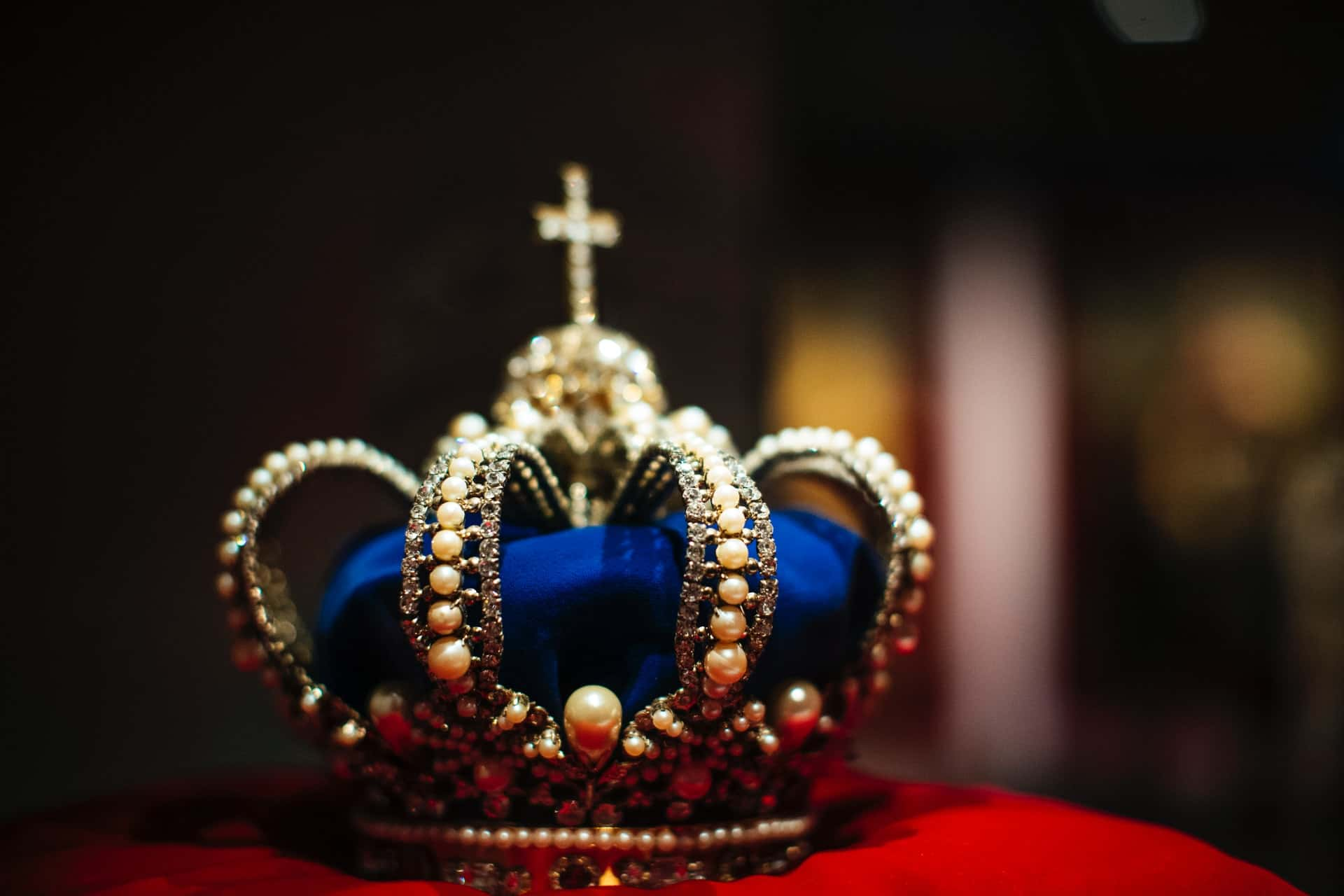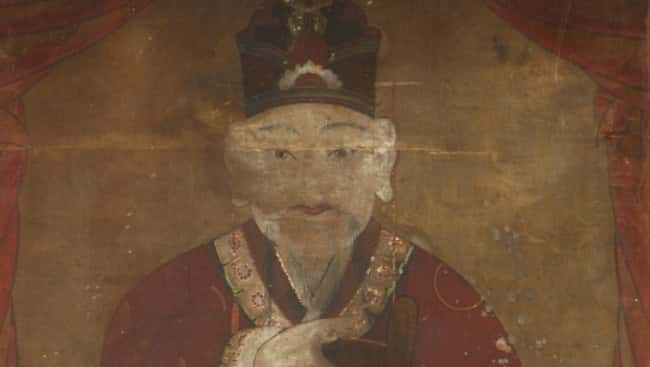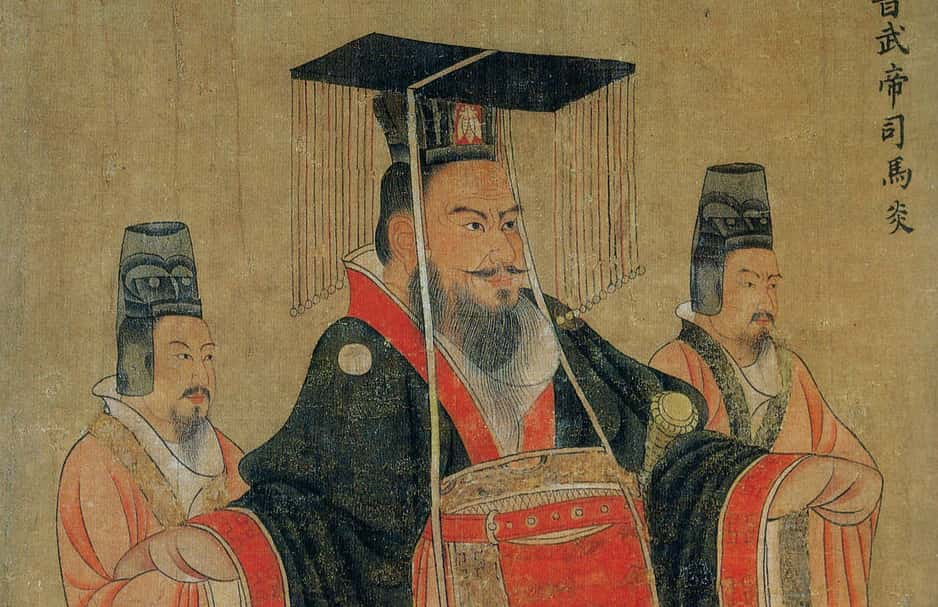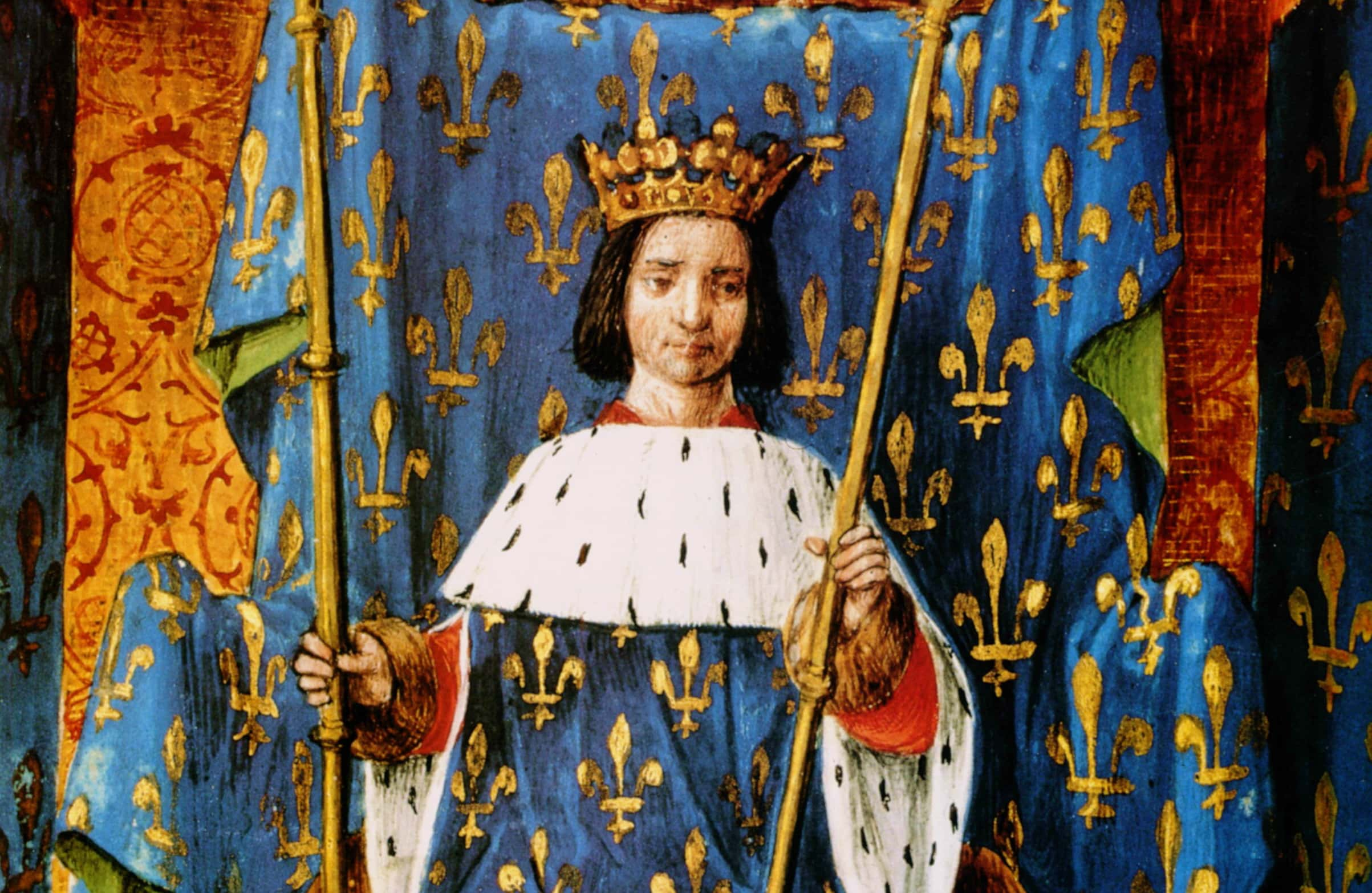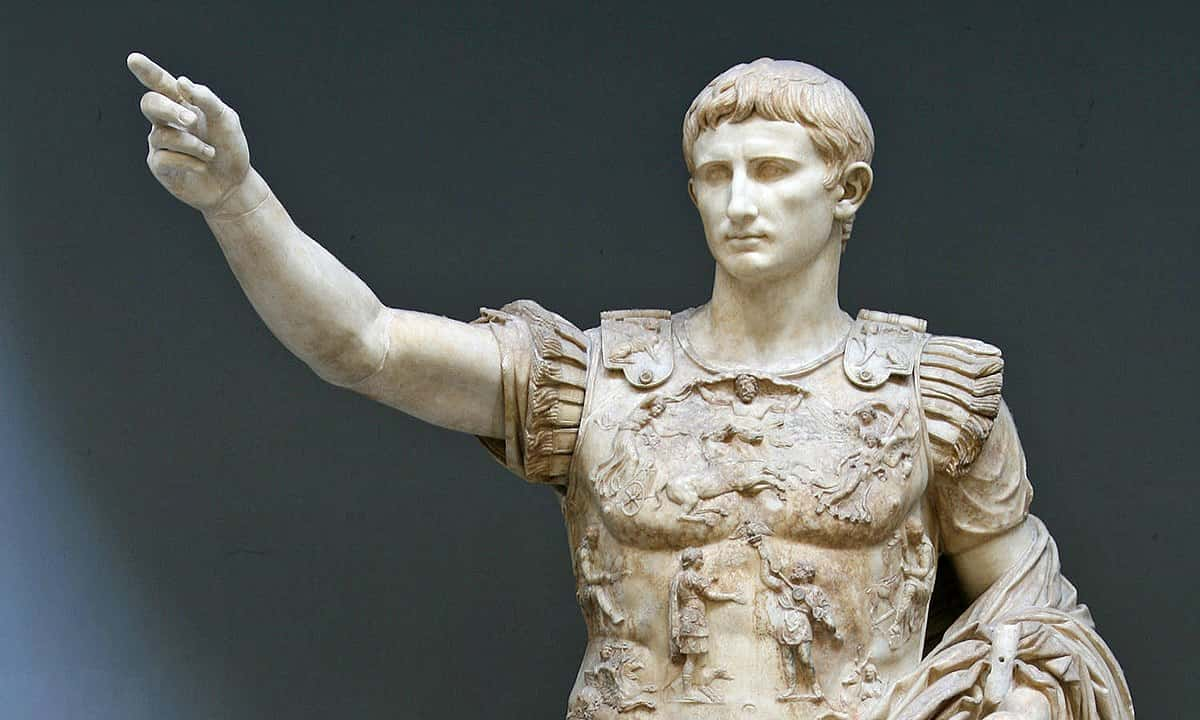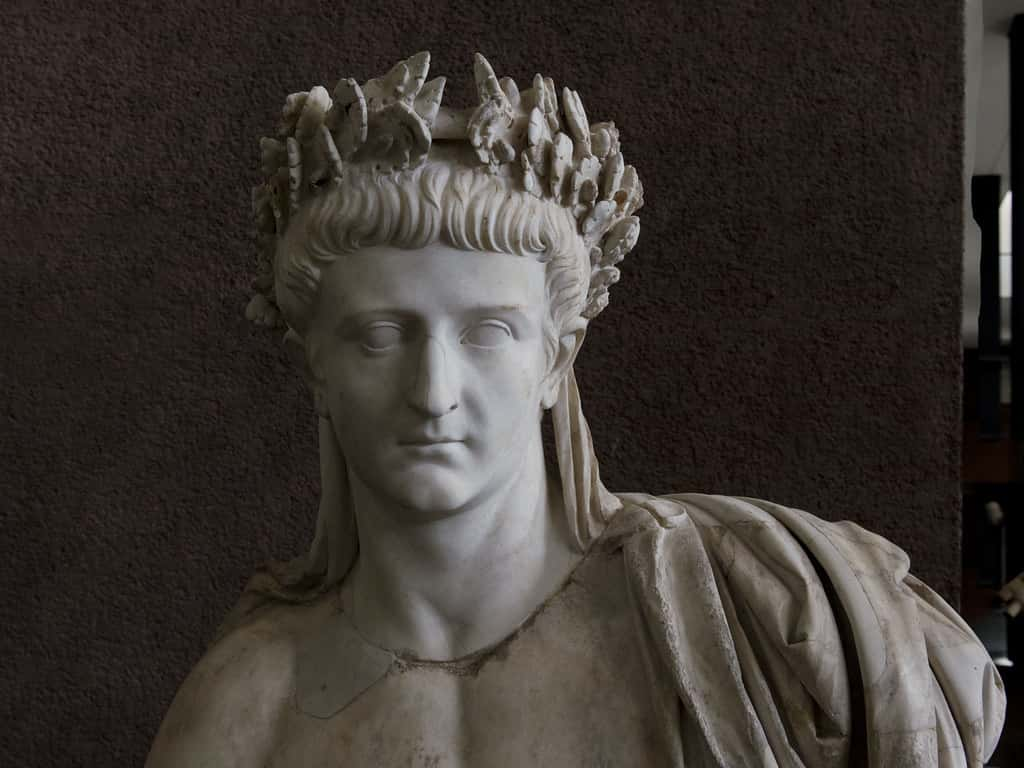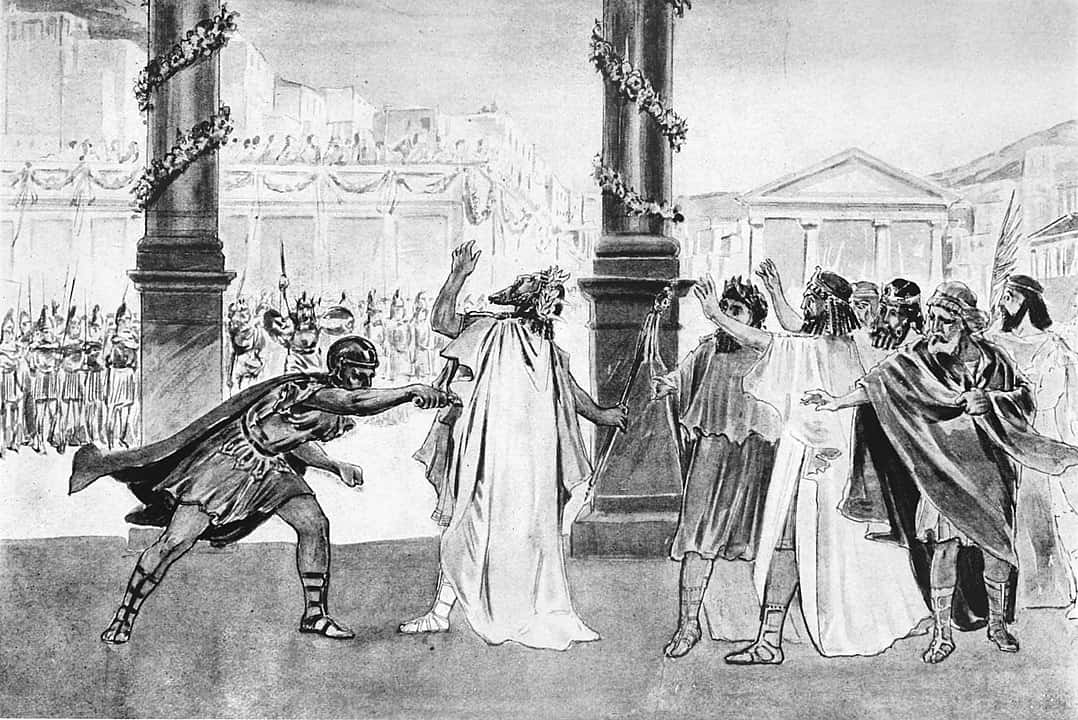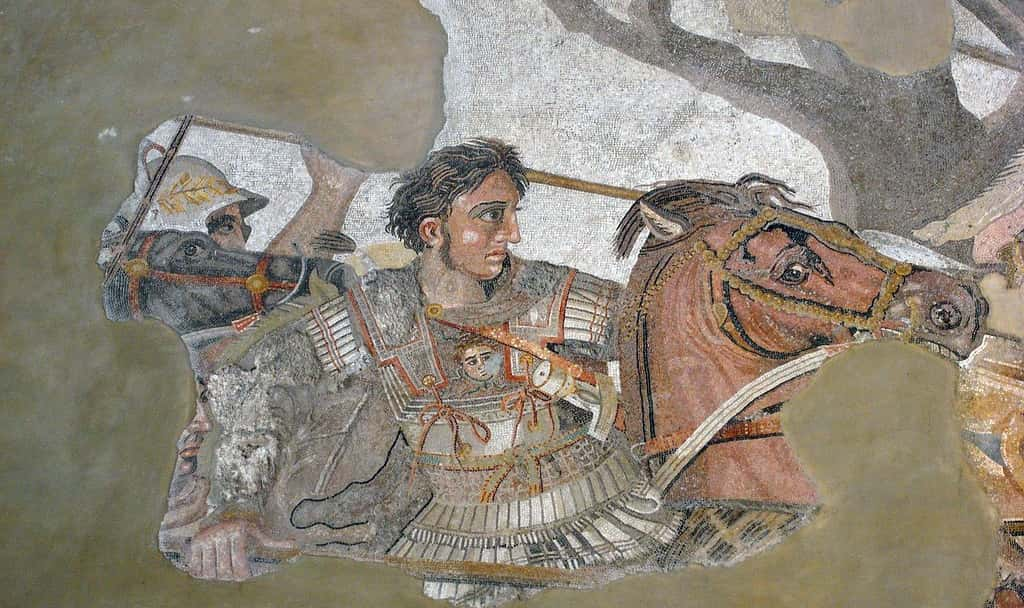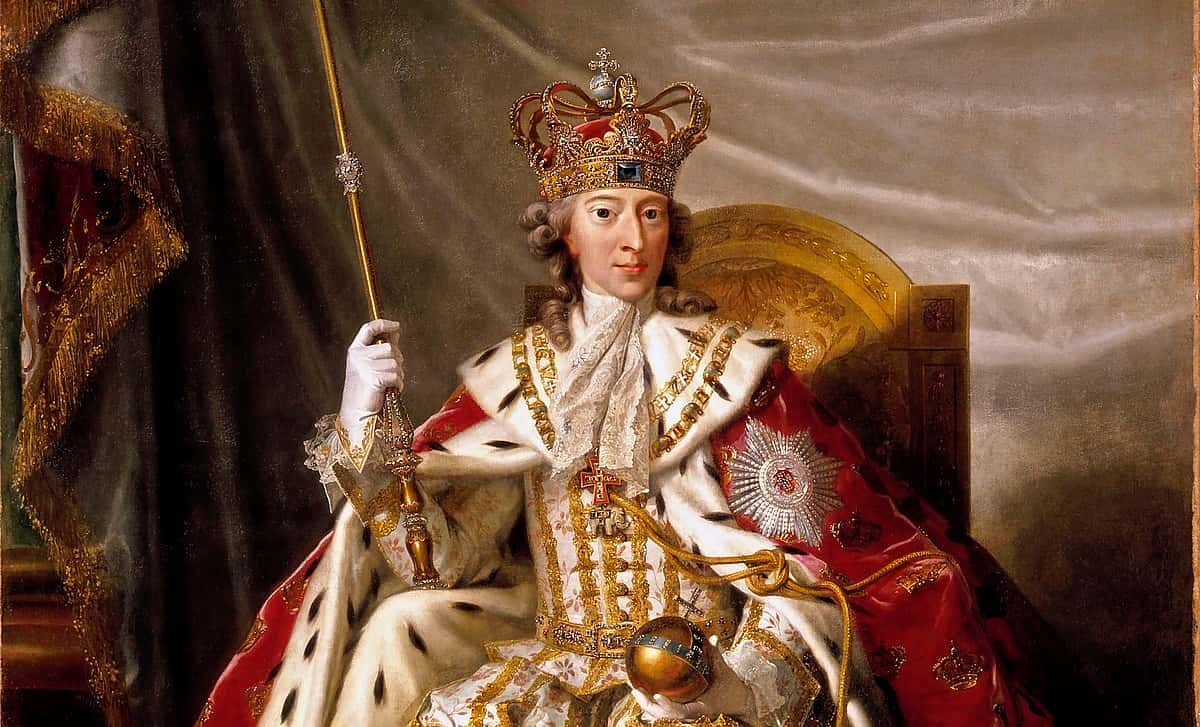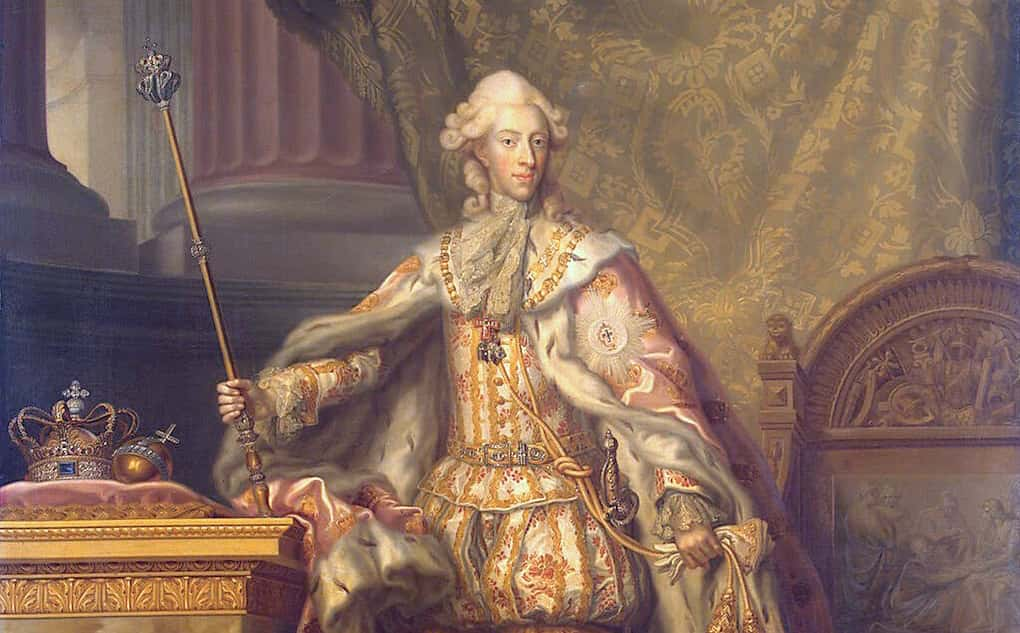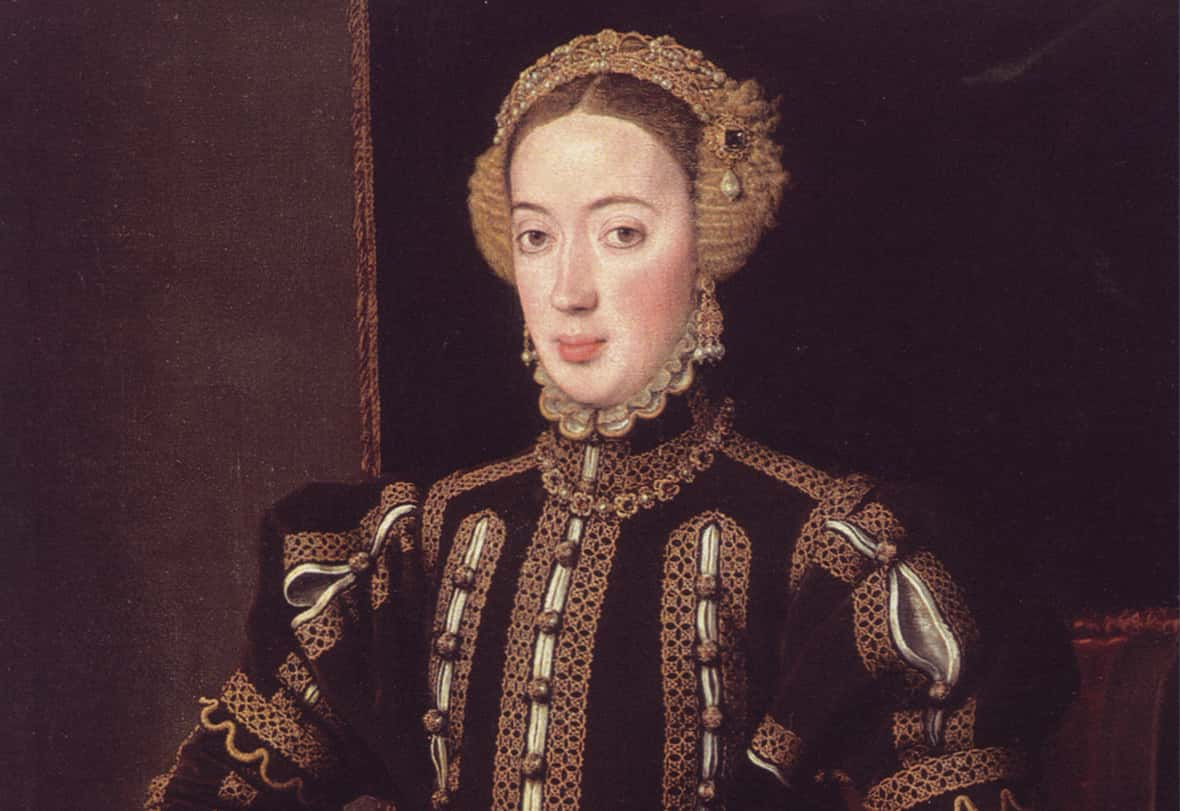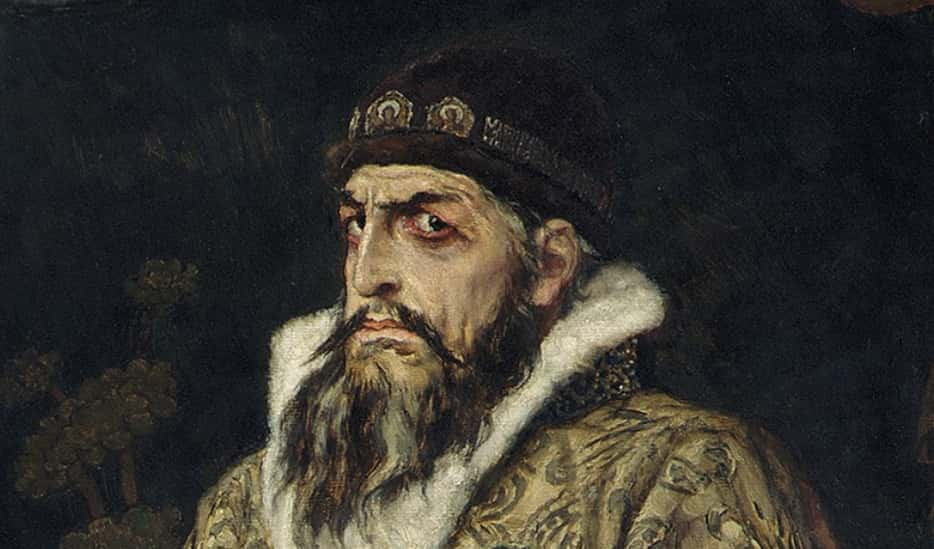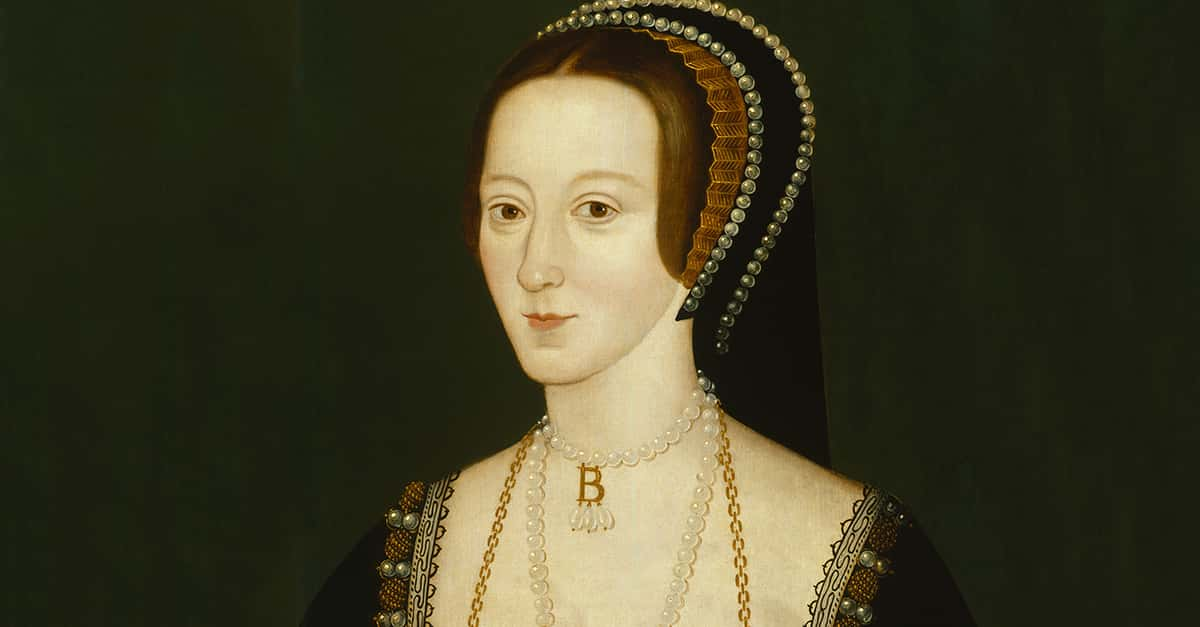“One of the strongest natural proofs of the folly of hereditary right in kings, is, that nature disapproves it, otherwise, she would not so frequently turn it into ridicule by giving mankind an a-- for a lion.”q
Monarchy has never been the fairest form of government, but things get especially difficult when the ruler of a country isn’t necessarily the most grounded human being. In fact, some of them ruled so disastrously that they have become famous in history for being insane. How much is really true of these mad monarchs? What caused their madness in the first place? Find out more with these facts about mad monarchs.
Mad Monarchs Facts
42. Undiagnosed
One recurring issue with the idea of a "mad monarch," especially the further back you go in human history, is the fact that the supposed madness could have been an eccentricity, which was exaggerated for the history books and word-of-mouth. There’s also the chance that their abnormal behavior was part of a mental condition that wasn’t recognized or understood in antiquity.
41. I Hated That Guy
Another serious problem with the description of these mad monarchs is the fact that the person writing their stories down could very well have been exaggerating the situation, or even making it all up! Historians have never been bound by law to tell the truth in their chronicles, so anyone they had a problem with could have ended up looking much worse than he or she ever was in real life. Sadly, there is only so much that can ever be known for sure.
40. A Disappointment to Dad
At the tender age of 17, Prince Sado of Korea became sick with the measles. This illness is said to have triggered a madness in Sado, which first manifested in the form of hallucinations and nightmares. By 1757, however, the madness in Sado led him to acts of brutal violence. Eventually, his father had enough of Sado’s actions and sealed him inside a chest until he died eight days later.
39. That’s Harsh, Dude…
Nobody likes to be laughed at or have people whispering around them, but King Erik XIV of Sweden took these pet peeves to a whole new level. Anyone who was caught doing either of those things around the king was sentenced to death for treason.
38. Fast Overturn
Emperor Hui of Jin was born with developmental disabilities, so he never got the chance to rule as an Emperor might have done. Instead, his reign saw him in the thrall of several regents who ruled through him. Not a single one of them lasted longer than three years in the job, which, to be fair, is still better than Ned Stark managed.
37. Down, Your Highness, Down Boy!
When the great Emperor Justinian I was on his death-bed, he named his nephew as heir. Safe to say he might have needed to make another choice, since Justin II proved unfit for the throne. Not only did his policies lead to a disastrous war with the Persians, he began to fall victim to fits of insanity. Justin was allegedly wheeled around the palace while he would try to bite passersby.
36. The Madness of King George
King George III of England ruled for more than 59 years, a length of time that only Elizabeth II and Victoria I have surpassed. Despite this longevity, George III’s reign was made infamous by his bouts with mental illness. Things became especially serious in his final years, where he became blind, partially deaf, and developed full-blown dementia.
 Wikipedia
Wikipedia
35. Solitary Confinement
As a child, Mustafa was imprisoned by his brother, Sultan Ahmed of the Ottoman Empire. Mustafa was kept in a tower without windows, with a brick wall built over the door, and no human contact whatsoever. It’s safe to say that 14 years in a place like that will leave an impact on someone, and such was the case with Mustafa. After Ahmed’s death, Mustafa was released and became Sultan. Mustafa gave no thought to organizing an efficient government to back up his rule, preferring to appoint random people he liked (to be fair, you’d also be looking for friends after 14 years of no human contact). Mustafa was eventually deposed and put back in his prison home.
34. Round Two
Amazingly, Mustafa got a second chance after his nephew proved an efficient but unpopular ruler. This time, Mustafa was even worse off than before. He’d become prone to giggling at random while he resumed appointing random people to the government without a care for competence. Mustafa was eventually deposed a second time, and re-imprisoned, presumably while the Ottomans glared at each other and said, “And that’s the last time!”

History's most fascinating stories and darkest secrets, delivered to your inbox daily.
33. Adult Supervision
Chinese Emperor An of Jin was described as being so developmentally challenged that he could not even speak or dress himself. As a result, it was his uncle who held the power through him, but this didn’t stop warlords and regents from rising up in his territory to carve up power for themselves. Tragically, An was eventually strangled.
32. Too Brief a Moment
For a more recent example of a mad monarch, King Talal of Jordan was forced to abdicate his throne in 1952 after less than 13 months in power. He was found to suffer from schizophrenia, prompting his abdication, and lived in a sanitorium in Istanbul for the rest of his life.
31. Mad for Vengeance
Charles VI of France’s first recorded incident of mental illness happened in 1392. A friend of his, Olivier de Clisson, was nearly murdered, but escaped with his life. However, Charles was insistent on raiding Brittany, where the would-be murderer was being sheltered. Seemingly in the grips of a fever, Charles was furious at the slow pace of the military expedition he was leading. One day, during the trip, a spear accidentally clanged loudly against someone’s helmet, which caused Charles to draw his sword, scream that he was being betrayed, and attack his own company. He was ultimately subdued (and fell into a faint) but not before he’d killed several men.
30. Now He’s Just Mad
After this incident, Charles VI displayed further signs of madness into his reign. He would go through periods of time being unable to recognize his own wife and children. In 1405, he went five months without changing his clothes or taking a bath. It’s safe to say that there were quite a few reasons why he was ultimately given the moniker "Charles the Mad."
29. Shattering Delusions
Charles VI’s madness was so well-known, in fact, that a mental delusion was given a special term because he suffered from it. Reportedly, Charles would spend periods of time convinced that he was made of glass. He would go to great lengths to protect himself from breaking apart, including having iron rods sewn into his clothes in case he so much as bumped into another person. The term "glass delusion" was eventually coined for this condition.
 Wikipedia
Wikipedia
28. Six Is an Unlucky Number, It Seems
Charles VI was the maternal grandfather of Henry VI of England, and it’s been heavily suspected that Henry inherited his grandpa’s tendencies for madness. He suffered from hallucinations and was prone to mental breakdowns, leading modern experts to suggest that Henry VI was an undiagnosed schizophrenic.
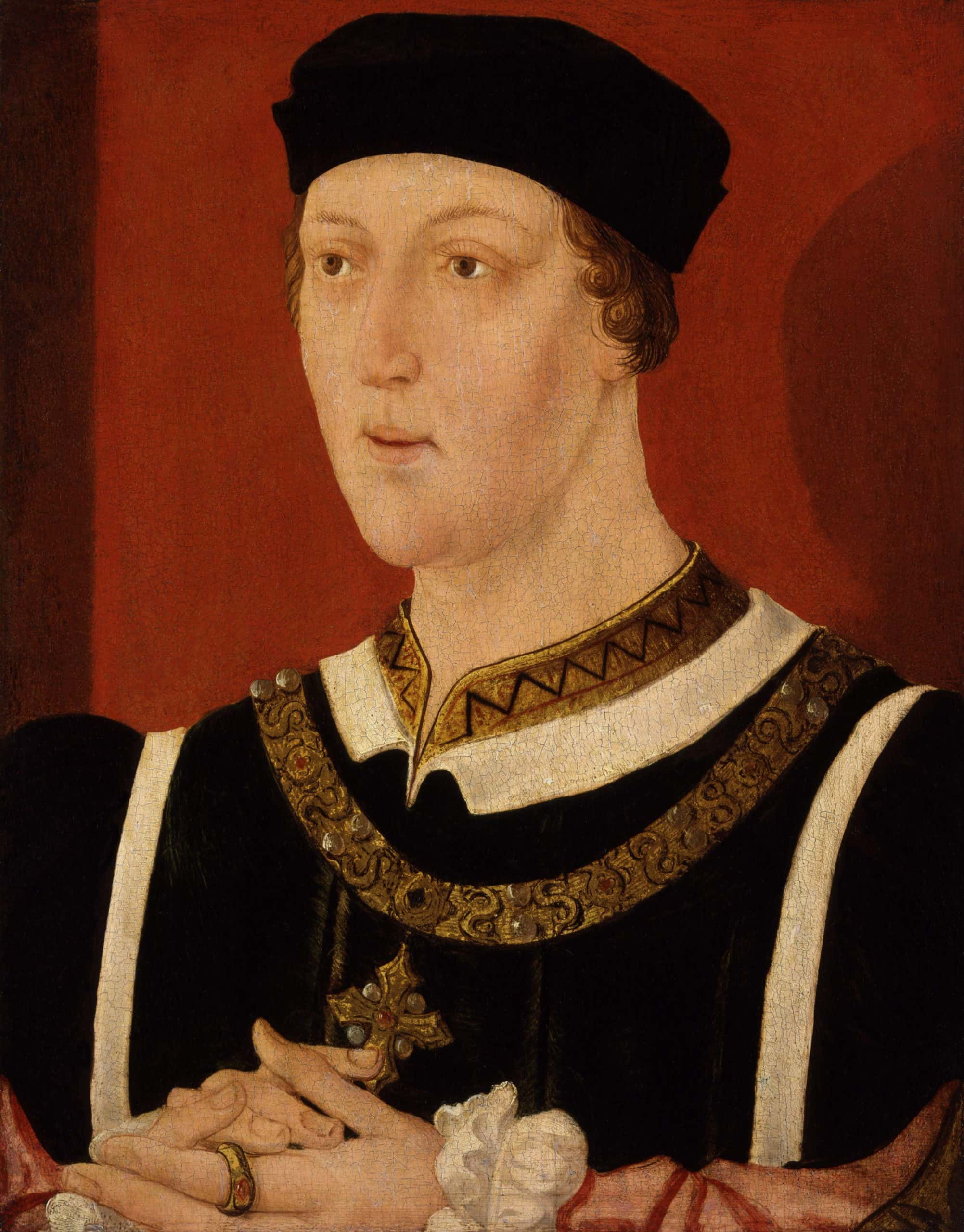 Wikipedia
Wikipedia
27. Isn’t War Fun?
The madness of Henry VI can best be understood from an anecdote concerning the Second Battle of St Albans, which was fought on the 17th of February 1461. By this point, the king's madness had progressed so far that he was laughing and singing while men died all around him.
26. The Mad Empress
In 1864, Mexico’s president, Benito Juarez, was deposed in a plot orchestrated by Napoleon III of France to install the archduke of Austria, Maximilian, as Emperor of Mexico. Maximilian and his wife, Carlota, were enthusiastic with their new empire, speaking Spanish and proposing many reforms to win the people to their side. Unfortunately, this caused their European support to withdraw, and their rule was put in great jeopardy. Carlota went back to Europe to regain said support, but she suffered a nervous breakdown when she failed. She spent the rest of her life in Belgium, never recovering her sanity again.
25. The Failed Follow-Up
The stepson of the great Emperor Augustus, Tiberius was initially hailed as a great Roman general. However, when he became Emperor, Tiberius was reported to have become deeply bitter due to personal tragedies and the strain of being the Emperor. He was said to have withdrawn from Rome to Capri, where Roman writer Suetonius alleged that Tiberius engaged in such actions as child molestation and paranoid acts of cruelty. As people sought to climb the ladder and seize power for themselves, Tiberius reacted with increased paranoia and hostility, launching treason trials which resulted in multiple executions.
24. Then Again…
Despite this villainous portrayal by Roman historians, it’s not certain just how bad Tiberius actually was as an Emperor. His reign oversaw an internal strengthening of the empire, with billions of sesterces in the Royal Treasury. Tiberius also made use of diplomacy over the costly option of open war. Some might say there was some method in his madness!
23. So, He Hated The Lion King?
King Farouk of Egypt was the last ruling monarch of that nation, and for good reason. For one thing, Farouk lacked a certain self-control: he was alleged to consume 30 bottles of soda in a single day and was described as a “stomach with a head” when he eventually weighed 300 pounds. This lack of reason extended to his perception of reality. Farouk once went down to the Cairo Zoo and shot the lions in their cages after having a dream of being attacked by lions. He was also a notorious thief, even stealing a watch from Winston Churchill, even though he probably could have bought 10 of those watches without committing a crime to do it.
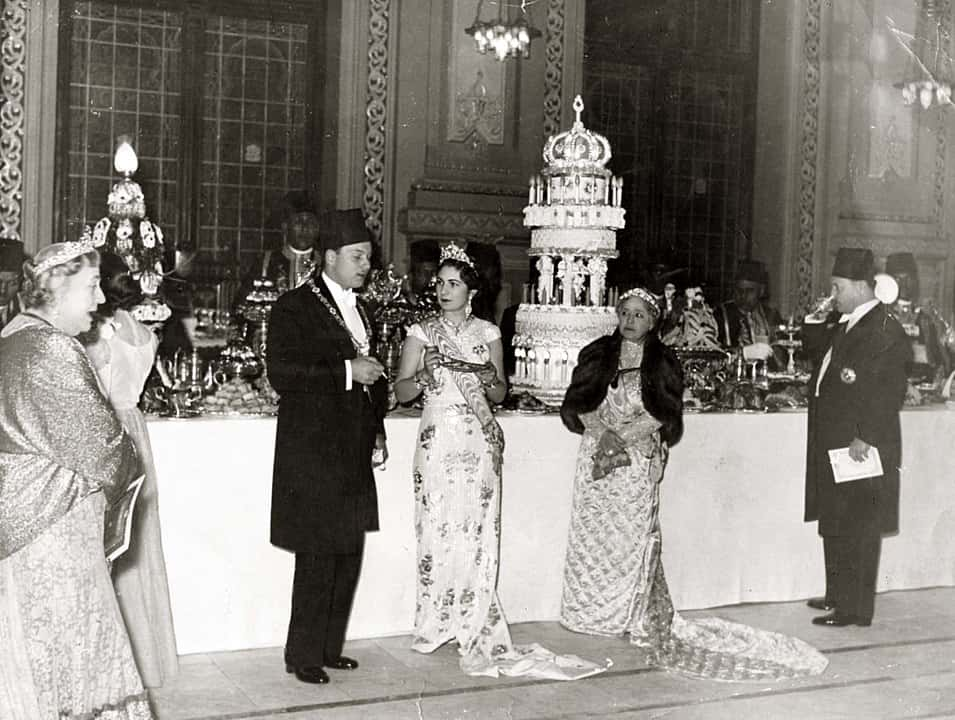 Wikipedia
Wikipedia
22. I’m Not Crazy, I Promise!
Ludwig II of Bavaria, rare on this list, remained beloved despite being considered insane during his time. This double standard might have come about thanks to his spending the royal treasury on building theaters and developing Bavaria into a cultural hub in Europe. While Bavaria ended up being absorbed into Prussia just two years into Ludwig’s reign, his legacy has survived the accusations of madness that historians now say were slightly exaggerated.
21. Defamation of Character
During World War I, much was made of Kaiser Wilhelm II’s madness. It’s worth pointing out that both branches of Wilhelm’s family had a history of mental illness, and he was shown to have displayed emotional instability. However, as it has often happened, history was written by the victors, who had spent the war vilifying their enemies with gusto.
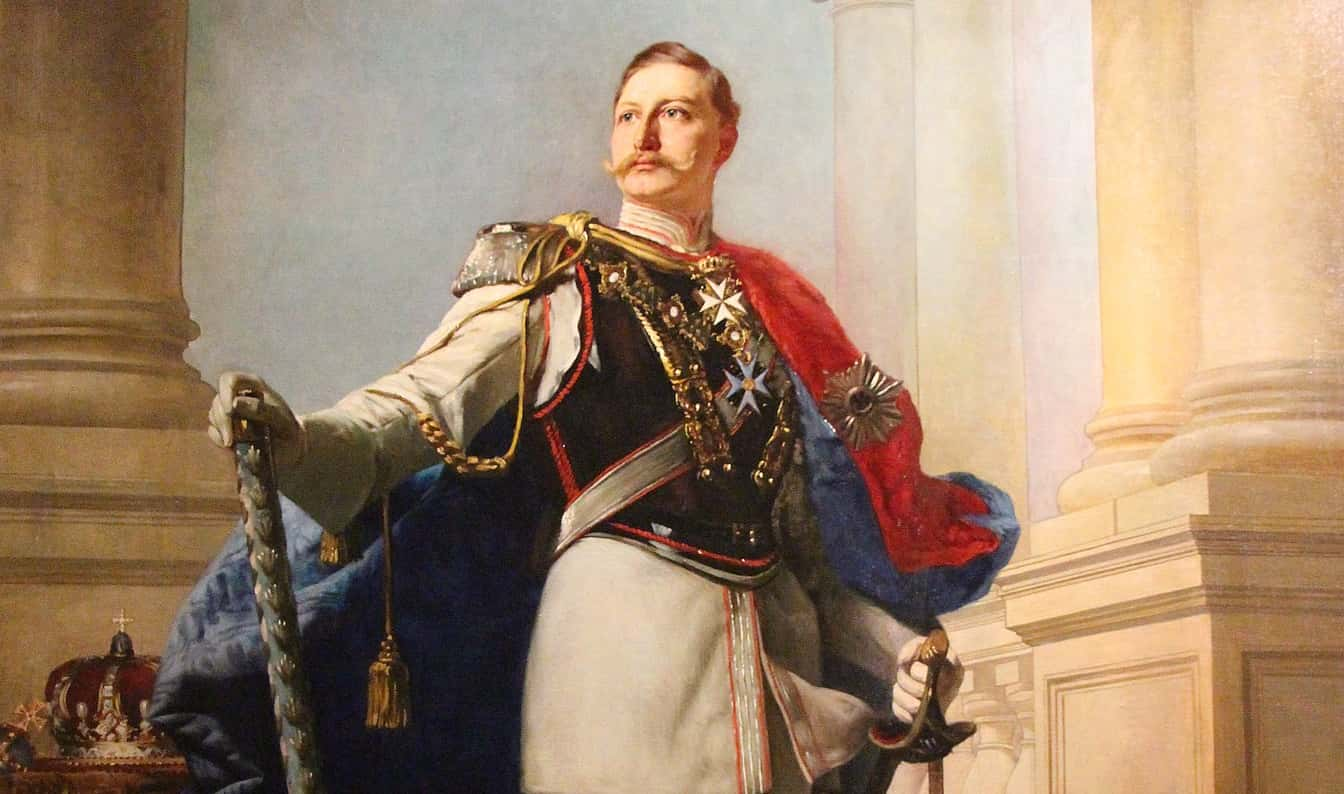
20. Love of My Life
Not all mad monarchs are necessarily bad. Tsar Peter the Great of Russia was a well-beloved figure in Russian history, responsible for many great changes and advances. However, he also suffered from paranoia due to a childhood of watching family members die cruelly (or as the Russians call it, "Tuesday"). He did things like practice dentistry on his own court nobles, and once when the nobles were rightly disgusted at the dissection of a corpse, he reportedly ordered them to take a bite out of said corpse. Peter would suffer from fits throughout his life, with only his beloved second wife, Catherine, able to help him through these moments. In return, Peter helped pave the way for Catherine to become ruler of Russia after his death, setting a new precedent for women in the Russian monarchy.
19. Phil Jr.
Contrary to what you might think, Alexander the Great wasn’t Philip II’s eldest son. Philip had actually had an elder son, also called Philip. Philip Arrhidaeus (as he was called) was afflicted with a learning disability, or a full-blown mental disability depending on who’s writing about it. This disability, according to Plutarch, came from a failed attempt by Philip II’s jealous fourth wife, Olympias, who wanted to clear the path to power for her son Alexander.
18. Sibling Rivalry
Whether it’s true that Olympias jealously tried to murder her husband’s firstborn son is debatable, but it’s worth pointing out that Olympias’ son, Alexander, was initially threatened by his older brother, despite his disability. In a famous story, Philip II tried to have Philip Arrhidaeus engaged to the daughter of a man named Pixodarus. Alexander caught wind of it and blocked the possibility of nuptial bliss for his brother, fearing the heir the union might produce.
17. Long May They Reign
After Alexander the Great’s death, there was a serious succession crisis since his wife, Roxana, was still pregnant when her husband died. Not only that, many of Alexander’s former generals and soldiers disliked the idea of a half-Iranian child becoming king, so a movement was made to crown Philip Arrhidaeus, his disabilities be damned. After some internal fighting, Arrhidaeus and Roxana’s baby, a son named Alexander, were crowned co-rulers of the empire, albeit in name only.
16. Power Couple
Sadly, Philip III’s reign wasn’t a peaceful one. Alexander’s generals let their ambitions run freely due to the weakness and instability of the monarchy. Meanwhile, Philip was married to Eurydice, who proved ambitious enough for the both of them. Exploiting a conflict between two young noblemen named Cassander and Polyperchon, she allied with Cassander to take power in Macedonia for herself and Philip. This stopped when Olympias, Alexander’s mother, joined forces with Polyperchon and invaded. By 317 BC, Philip was executed by Olympias, while Eurydice was forced to take her own life.
15. Crazy Caligula
The Roman Emperor known as Caligula has gone down as one of the most insane rulers in the history of the Roman Empire. He famously spent all the money in the treasury left behind by Tiberius on more and more extravagant projects. Some of these projects included a statue of himself to be built and established in the Temple of Jerusalem. This was part of his intention to be regarded and worshipped as a deity.
14. The Mad Emperor
Many anecdotes exist that reveal the extent of Caligula’s lunacy. One of the most notable is an incident where he was bored while attending some games being held. When he found out that there weren’t any prisoners to throw to the wild beasts during the halftime show, he ordered a section of the audience to be sacrificed instead. Caligula also had a malevolent sense of humor. Once at a dinner party, he reportedly burst into raucous laughter. When asked to explain the reason for his mirth, he replied, “I’ve just thought that I’ve only to give the word and you’ll all have your throats cut.” Hilarious, right?!
 Shutterstock
Shutterstock
13. Where Did It All Start?
Just like with Tiberius, historical accounts of Caligula have to be taken with a grain of salt. Various explanations are given for Caligula’s madness, ranging from him epilepsy, to some kind of illness that nearly killed him, to a magic potion. We’re betting it was probably the magic potion.
 Caligula, 1979, Felix Cinematografica
Caligula, 1979, Felix Cinematografica
12. The Royal Toy
Puberty hits people differently, but Christian VII of Denmark was a special case. Discovering masturbation, the teenaged ruler decided that he would make it his personal obsession, much to the worry of his personal physicians, who felt that such frequent masturbation was damaging to his health.
11. The Mad King
Christian VII’s mental illness deteriorated as life went on, even after he got married to Princess Caroline Matilda of Great Britain. He quipped that it was “unfashionable to love one’s wife,” which was his only explanation for embarking on a series of sexual excesses, including an affair with a courtesan. Christian even inflicted self-mutilation and went through periods of paranoia.
10. Bereaved Mother
Maria of Portugal might not have exactly been mad as much as she was possessed with religious mania. She became convinced that her father had gone to Hell and that she was destined to go there herself. As a result, she went to drastic measures to redeem her soul, such as freeing many prisoners and giving them positions in her court. Later on, her eldest son and only daughter died in the same year. She was recorded as spending some of her days wandering the halls, screaming.
9. Don’t Milk It…
According to Persian tradition, the emir of Rayy known as Majd al-Dawla suffered from the illusion that he was a cow. He wasn’t even the only one who believed that about himself; Nebuchadnezzar II was said to suffer from the same belief. Incredibly, there exists a term for this condition, called boanthropy.
8. Did She Also Scream “No More Wire Coat Hangers”?
King Gustavus Adolphus and Queen Maria Eleonora of Brandenburg had great difficulty producing an heir, but in 1626, they finally succeeded. However, Maria Eleonora was infuriated that the child was a girl, to the point that she described her daughter as being “a monster.” Allegedly, Maria Eleonora attempted to kill her own child multiple times, but thankfully failed to do so.
7. The Wicked Usurper
The rule of King Richard III of England has long been branded as one where he ruthlessly murdered the true heirs to the throne so he could take it for himself. He has been written, most popularly by William Shakespeare, as a Machiavellian villain whose overthrow was justified not only through his villainous behavior, but for his twisted appearance and near psychopathy.
6. Propaganda for My Patron
However, despite this sinister historical portrayal, we must remember from where it comes. King Richard III was defeated and killed by the forces of Henry Tudor, who began a new dynasty that included Queen Elizabeth I. Writers like Shakespeare living in that time had to essentially write propaganda that glorified this Tudor line.
5. Hi Grandpa!
Shakespeare continued to rewrite history when it came to the reign of King James I of England. When it came time to suck up to James, however, Shakespeare went to greater lengths than he did with Richard III. The play Macbeth contains a supporting character named Banquo who is very nobly compared to Macbeth. Banquo is also fated to be the ancestor of kings, which is a reference to the fact that one of Banquo’s descendants was supposedly none other than James I himself.
 Wikipedia
Wikipedia
4. Freud on Line One
Qianfei was a Chinese emperor of the Liu Song dynasty, and it’s safe to say that he had a chip on his shoulder regarding his father. In fact, he loathed his father so much that he had his father’s image forever defaced after the man’s death—he gave all his statues large noses, which sounds like a pretty lame burn—and repealed his father’s laws almost overnight.
 Shutterstock
Shutterstock
3. Brief and Brutal
Qianfei spent his reign horrifying as many people as he could, while also murdering them. He kept several of his uncles in cages, treating them like animals and constantly threatening to kill them. He began an incestuous affair with his aunt while ordering other female members of his family to havee in front of him. He killed anyone who didn’t comply with his commands. Small wonder that his reign only lasted a year before he was murdered.
2. Not a Mama’s Boy
Amazingly, even Qianfei’s own mother was unable to find a good thing to say about him. Upon her deathbed, she is said to have exclaimed “Someone bring me a sword and cut me open to see how this animal came out of me.” Ouch…
1. What Have I Done, My Son?!
In one of the most famous incidents of a mad monarch, Ivan the Terrible was once seized with a fit of such rage that he assaulted his pregnant daughter-in-law, causing her to miscarry. When his son understandably confronted his father, Ivan struck his son with his scepter, killing him. Ivan’s mental breakdown as he lamented this action has famously been captured in a haunting painting by Ilya Repin.
Sources: 1, 2, 3, 4, 5, 6, 7, 8, 9, 10, 11, 12, 13, 14, 15, 16, 17, 18, 19, 20, 21, 22


